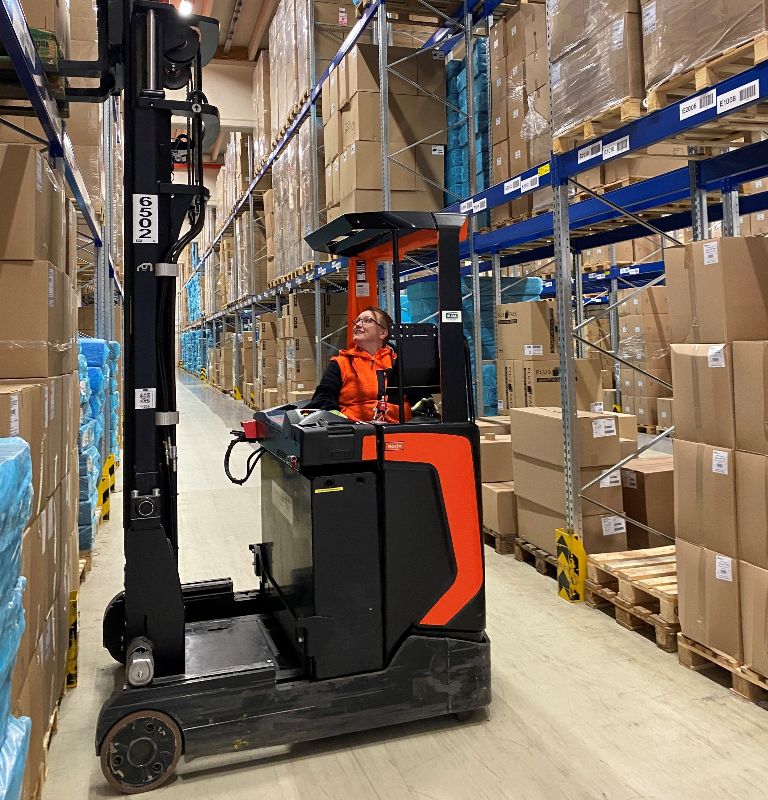Logistics worker
"Warehouse work requires flexibility and adaptability, as you are often in a hurry and not everything goes according to plan. A sense of humour is also quite essential."

- Katja Nummela
- A logistics worker at Ki-Sal Oy.
- Completed a basic qualification in the automotive and transport field at Vantaa Vocational and Industrial Art College.
- 17 years of work experience in the field.
Briefly explain what you do for a living.
I work in logistics for a company called Ki-Sal specialising in packaging material . My duties include receiving and unloading loads with a forklift truck, shelving, picking and sending completed shipments to customers. I also prepare waybills and clarify unclear cases, such as goods broken or lost in transit.
How have you ended up in the profession of your choice?
My parents told me I couldn't stay at home and that it would be good to get an occupation. I applied to a vocational school on the transport side because you can also get your driving licence from there. After graduation, I went to work in a warehouse for the summer, where I stayed for 12 years. I was also working as a masseuse at the same time. After the birth of my child, I started to miss regular working hours, so I went back to the logistics sector.
Describe your typical working day or week.
When I come to work in the morning, I first turn on the computers and check my e-mail for any special considerations, such as outbound consignments. I print out the documents related to shipments and create the waybills for them. Then I start collecting goods for transport. If a load arrives at the warehouse in the middle of the day, all other work stops and I start unloading it.
What kind of work environment or working hours do you have?
I work in the warehouse. You’re exposed to dust at work, and sometimes a container that arrive has moisture inside, causing the contents to mould. In other words, in this job you have to tolerate some unhealthy conditions.
The working hours at my company are usually from 8 a.m. to 4 p.m. on weekdays, but my shifts are always from 7 a.m. to 3 p.m.
What kind of competence or qualities are required in the profession?
Warehouse work requires flexibility and adaptability, as you are often in a hurry and not everything goes according to plan. A sense of humour is also quite essential.
What is the best thing about your profession?
The best thing is my colleagues and a good employer. We have good communication all the way up to senior management, which is reflected in our daily work as we can say things as they are.
What are the downsides of the profession or what seems challenging?
Warehouse work involves a lot of walking and lifting, so the work is physically demanding.
What would you tell a person considering the profession of a logistics worker?
It sometimes requires a cool head. For example, job orientation situations can sometimes be challenging for everyone, as you may be busy unloading while having to guide a new employee at the same time.
How do you see the future of your profession?
Warehouse work is not going to stop, at least in the food packaging sector, because people have to buy food and will continue to do so in the future. The logistics sector is becoming more automated, but people are still needed.
